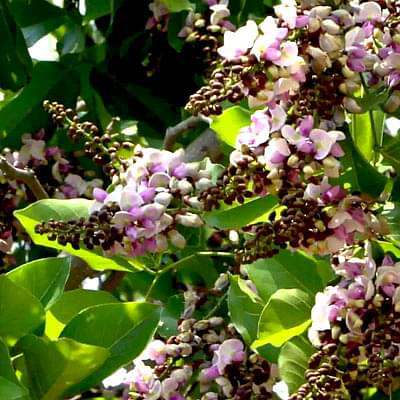
Pongamia Pinnata, Karanj - Plant
(MRP Inclusive of all taxes)
- Shipping ₹79 for entire order
- Country of origin: India

(MRP Inclusive of all taxes)
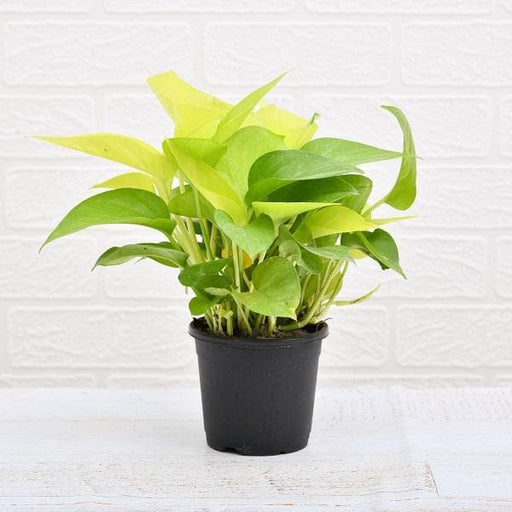 Save 29%
Save 29%
Air Purifier Money Plant with Pot The Air Purifier Money Plant, also known as Pothos or Epipremnum aureum, is a stunning indoor plant that...
View full details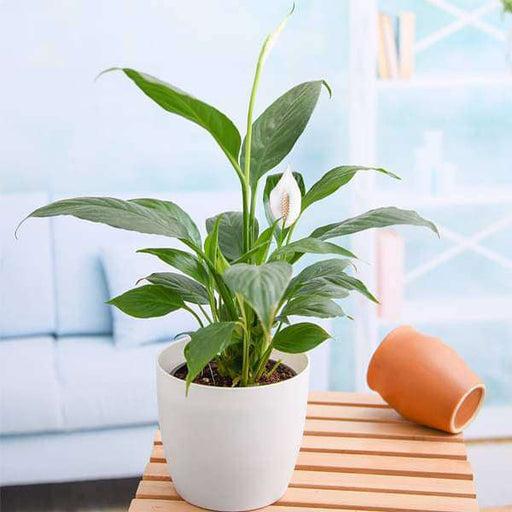
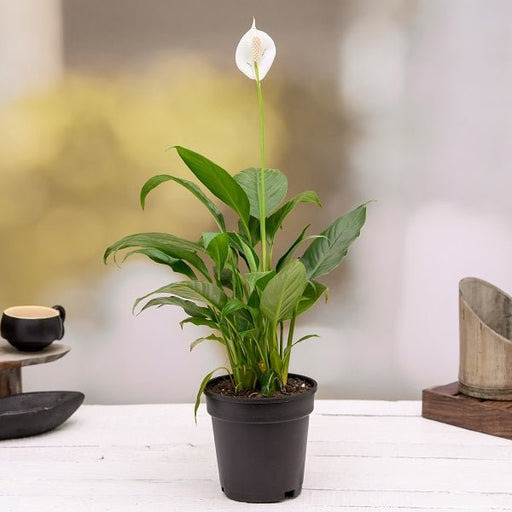 Save up to 15%
Save up to 15%
Peace Lily, Spathiphyllum - Plant The Peace Lily, scientifically known as Spathiphyllum, is a stunning houseplant celebrated for its elegant white...
View full details
 Save 25%
Save 25%
Jasminum sambac, Mogra, Arabian Jasmine - Plant Jasminum sambac, commonly known as Mogra or Arabian Jasmine, is a fragrant flowering plant...
View full details
 Save 18%
Save 18%
Combo Constituents Includes the Parijat Tree (Night-Flowering Jasmine), a culturally significant plant with fragrant flowers. Description The Pari...
View full details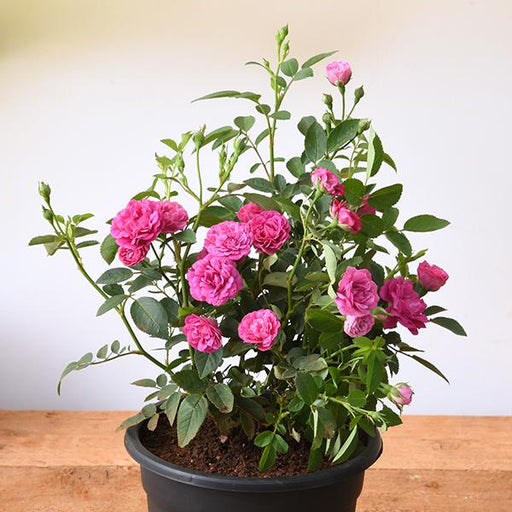
 Save 25%
Save 25%
Miniature Rose, Button Rose (Any Color) - Plant The Miniature Rose, also known as the Button Rose, is a charming and compact flowering plant that ...
View full details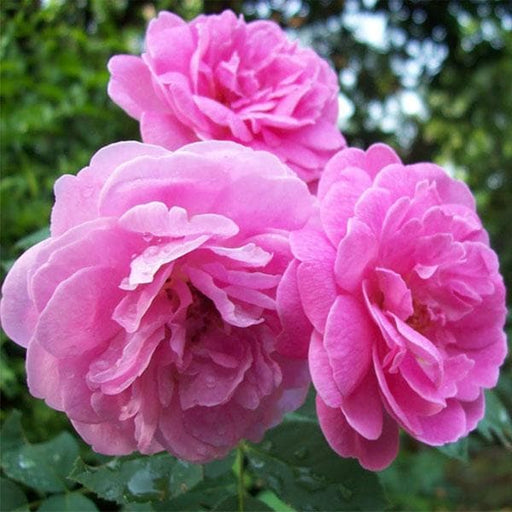 Save 25%
Save 25%
Damascus Rose, Scented Rose (Any Color) - Plant The Damascus Rose, also known as Rosa damascena, is a timeless symbol of beauty and romanc...
View full details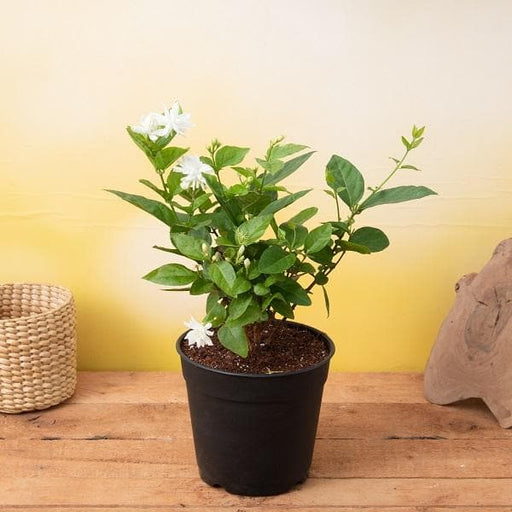
 Save 17%
Save 17%
Beautiful Fragrant Mogra, Arabian Jasmine Plant with Pot The Beautiful Fragrant Mogra, also known as Arabian Jasmine (Jasminum sambac), is...
View full details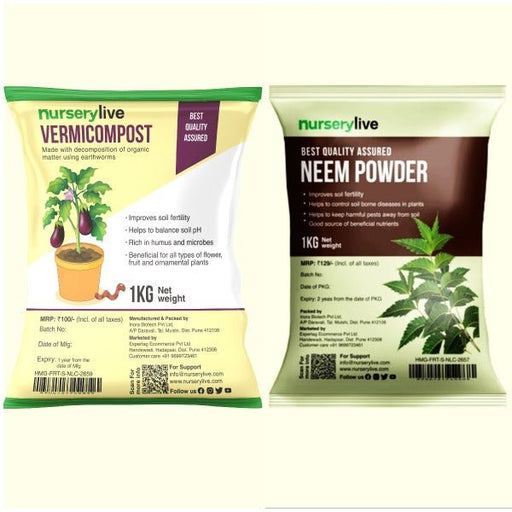 Save 15%
Save 15%
Pack of Vermicompost and Neem Cake for House Plants Transform your indoor garden with our premium Pack of Vermicompost and Neem Cake, spec...
View full details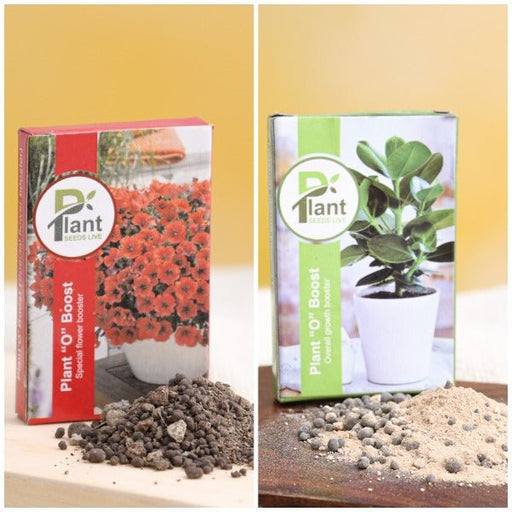
Pack of Plant Growth and Flower Boosters Unlock the full potential of your garden with our Pack of Plant Growth and Flower Boosters! This ...
View full details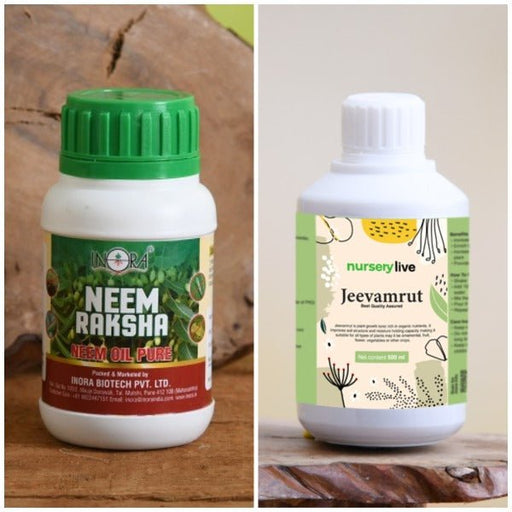 Save 38%
Save 38%
Combo of Jeevamrut and Neem Raksha for Easy Growth and Protection of Houseplants Transform your indoor garden with our exclusive combo of ...
View full details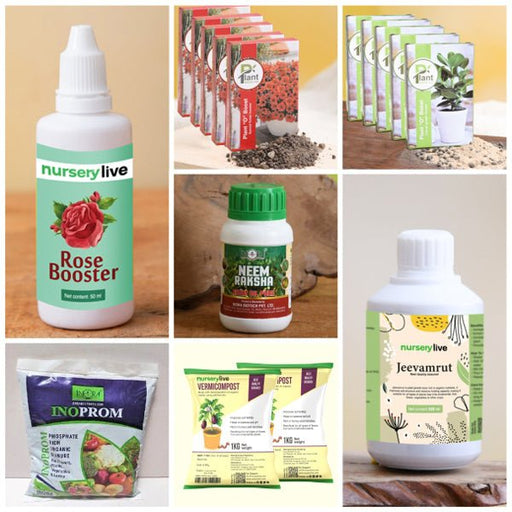 Save 22%
Save 22%
Plant Nutrients Kit (Pack of 16) for a Healthy Garden Transform your garden into a lush paradise with our Plant Nutrients Kit, featuring 1...
View full details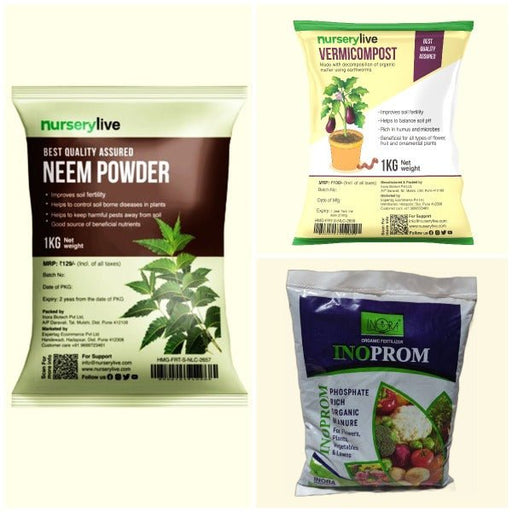 Save 16%
Save 16%
Combo of Top Plant Fertilizers Elevate your gardening game with our exclusive Combo of Top Plant Fertilizers, featuring two bags of premiu...
View full details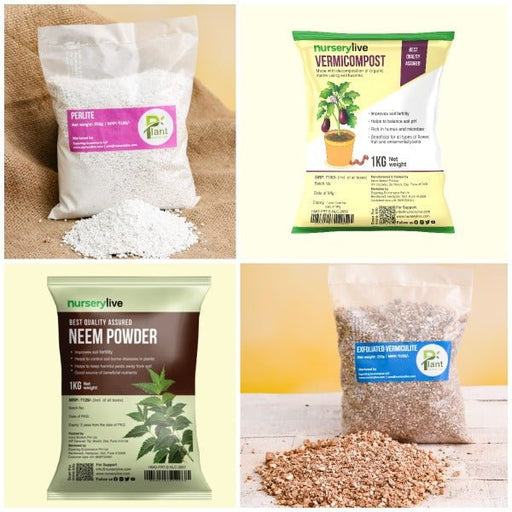 Save 24%
Save 24%
Pack of 4 Additives to Make Soil Healthy and Nutrient Rich Transform your garden into a thriving ecosystem with our Pack of 4 Additives de...
View full details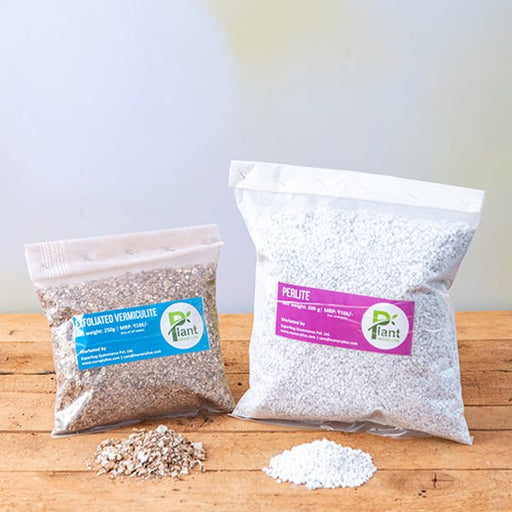 Save 30%
Save 30%
Transform your gardening experience with our premium Combo of Perlite and Vermiculite. This unique blend is designed to enhance soil aeration and ...
View full details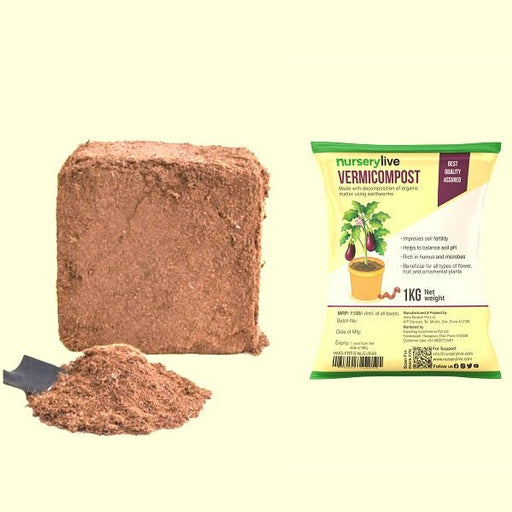 Save 27%
Save 27%
Combo of 2 Vermicompost and Cocopeat - Enrich Your Soil Naturally! Transform your garden into a thriving ecosystem with our Combo of 2 Ver...
View full details
 Save 35%
Save 35%
Best 6 Plants for Perfect Indoor Garden Transform your living space into a lush oasis with our curated collection of the Best 6 Plants for a...
View full details
 Save up to 50%
Save up to 50%
Mini Succulent Garden Pack Transform your space with our Mini Succulent Garden Pack, featuring a delightful collection of 4 any variety beautiful s...
View full details
 Save 30%
Save 30%
5 Best Fragrant Plants Transform your garden or indoor space into a fragrant paradise with our curated selection of the 5 Best Fragrant Plants. Th...
View full details
 Save 24%
Save 24%
Set of 2 Bonsai Looking Grafted Adeniums Transform your indoor or outdoor space with our exquisite Set of 2 Bonsai Looking Grafted Adenium...
View full details Save 45%
Save 45%
Top 4 Die Hard Succulents Pack Transform your indoor or outdoor space with our Top 4 Die Hard Succulents Pack, featuring a curated selecti...
View full details
 Save 30%
Save 30%
5 Best Indoor Plants Pack Transform your living space into a lush oasis with our '5 Best Indoor Plants Pack.' This carefully curated collection fe...
View full details
 Save 25%
Save 25%
Set of 4 Evergreen Air Purifier Plant Pack Transform your indoor space into a lush, green oasis with our Set of 4 Evergreen Air Purifier Pla...
View full details| SrNo | Item Name |
|---|---|
| 1 | Pongamia Pinnata, Karanj - Plant |
Pongamia Pinnata, commonly known as Karanj, is a remarkable deciduous tree native to tropical and subtropical regions. This fast-growing plant can reach heights of up to 15-25 meters and is celebrated for its beautiful, fragrant flowers and lush foliage. Karanj is not only aesthetically pleasing but also plays a vital role in improving soil health and supporting biodiversity.
What makes Karanj special is its ability to thrive in a variety of soil types, including saline and alkaline soils, making it an excellent choice for reforestation and land reclamation projects. Its seeds are rich in oil, which can be processed into biodiesel, contributing to sustainable energy solutions.
One of the standout features of Pongamia Pinnata is its nitrogen-fixing capability, which enhances soil fertility and promotes the growth of surrounding plants. This eco-friendly tree is also known for its medicinal properties, with various parts used in traditional medicine for treating ailments.
If you’re looking for a tree that’s not just a pretty face, Pongamia Pinnata, also known as Karanj, is your go-to green companion. This tree is like the Swiss Army knife of the plant world, offering a plethora of benefits. From its ability to fix nitrogen in the soil to its use in traditional medicine, it’s a multitasker. Plus, its seeds produce oil that can be used for biodiesel. Talk about a tree that’s eco-friendly and wallet-friendly! So, if you want to impress your friends with your knowledge of sustainable living, just drop “Pongamia Pinnata” into the conversation and watch them marvel at your botanical prowess.
Caring for a Karanj tree is like nurturing a diva; it requires attention but rewards you handsomely. This tree thrives in various soil types and loves a good sunbath, so make sure it gets plenty of light. Water it moderately, as it doesn’t want to feel like it’s living in a swamp. Pruning is essential to keep it looking fabulous and healthy. And don’t forget to check for pests; even the most glamorous trees can have their off days. With a little TLC, your Karanj will grow tall and proud, making you the envy of the neighborhood.
The uses of Pongamia Pinnata are as diverse as a buffet spread. From its seeds, you can extract oil for biodiesel, making it a green alternative to fossil fuels. The leaves and bark have medicinal properties, traditionally used to treat various ailments. Plus, it’s a fantastic shade provider, perfect for those lazy afternoons under a tree. Want to attract bees and butterflies? This tree is a pollinator magnet! So, whether you’re looking to go green or just want a tree that does it all, Pongamia Pinnata is your best bet.
If you’re impatiently waiting for your Karanj tree to grow, you’re in for a treat. This tree has a growth rate that can make even the fastest-growing plants a bit jealous. Under optimal conditions, it can reach maturity in just a few years. It’s like the overachiever of the plant kingdom, sprouting up to 15-25 meters tall. So, if you’re looking for a quick shade provider or a fast-growing addition to your garden, the Karanj tree is here to save the day. Just sit back, relax, and watch it grow!
Propagating Pongamia Pinnata is easier than pie, and just as rewarding. You can start with seeds or cuttings, making it a versatile choice for aspiring gardeners. If you’re going the seed route, soak them overnight to give them a head start. For cuttings, choose healthy branches and watch them root like they’re auditioning for a role in a botanical drama. With a little patience and care, you’ll have a thriving Karanj tree in no time. It’s like planting a little piece of nature’s magic right in your backyard.
The Karanj tree is not just a pretty sight; it’s an environmental superhero! With its ability to improve soil health and combat erosion, it’s like the tree version of Captain Planet. Its deep roots help stabilize the soil, while its nitrogen-fixing capabilities enrich it. Plus, it provides habitat for various wildlife, making it a crucial player in the ecosystem. So, if you’re looking to make a positive impact on the environment, planting a Karanj tree is a step in the right direction. Who knew saving the planet could be so easy?
The oil extracted from Pongamia Pinnata seeds is like liquid gold for eco-conscious folks. This oil is not only a sustainable alternative to fossil fuels but also has applications in cosmetics and traditional medicine. It’s a natural insect repellent, making it a favorite among gardeners. Plus, it’s biodegradable, so you can feel good about using it without harming Mother Earth. Whether you’re looking to fuel your vehicle or pamper your skin, Pongamia Pinnata oil is the versatile solution you didn’t know you needed.
If you want to elevate your landscaping game, the Karanj tree is your secret weapon. With its lush foliage and impressive height, it can serve as a stunning focal point or a natural privacy screen. It’s like the stylish accessory that completes your garden ensemble. Plus, its ability to thrive in various conditions makes it a versatile choice for any landscape design. Whether you’re going for a tropical vibe or a more rustic look, the Karanj tree can adapt and shine. So, get ready to impress your neighbors with your landscaping prowess!
Pongamia Pinnata is a champion of biodiversity, playing host to various species of birds, insects, and other wildlife. It’s like the popular kid in school, attracting friends from all walks of life. By planting this tree, you’re not just adding greenery to your space; you’re creating a thriving ecosystem. Its flowers are a favorite among pollinators, while its leaves provide shelter for various critters. So, if you want to be a biodiversity hero, planting a Karanj tree is a fantastic way to start. Who knew one tree could make such a difference?
The Karanj tree is like a personal trainer for your soil, whipping it into shape and keeping it healthy. Its deep roots help aerate the soil, while its nitrogen-fixing abilities enrich it, making it a win-win for your garden. This tree is a natural soil conditioner, improving structure and fertility over time. So, if you’re tired of lackluster soil, consider adding a Karanj tree to your landscape. It’s like giving your garden a nutrient boost without the need for synthetic fertilizers. Your plants will thank you!
Pongamia Pinnata has been a staple in traditional medicine for centuries, and for good reason. Its leaves, bark, and seeds are packed with medicinal properties that can treat a variety of ailments. From skin conditions to digestive issues, this tree has been the go-to remedy for many. It’s like having a pharmacy right in your backyard! So, if you’re looking to embrace natural healing, consider incorporating Pongamia Pinnata into your wellness routine. Who knew a tree could be such a health guru?
Pongamia Pinnata, also known as Karanj, is a tree that’s like nature’s multitasker. It’s a nitrogen-fixing superstar, providing shade, fuel, and even medicinal benefits. Plus, its seeds are like little treasure chests, yielding oil for biodiesel. Who knew a tree could be so versatile
Karanj loves to party in tropical and subtropical regions. You’ll find it strutting its stuff in India, Southeast Asia, and Australia. It thrives in various soils, even the not-so-fancy ones. So, if you’re in a warm climate, this tree might just be your new best friend!
Karanj is like the Swiss Army knife of trees! It offers shade, improves soil health, and its seeds can be turned into biodiesel. Plus, it’s a natural pest repellent. Talk about a tree that does it all! Who wouldn’t want a green superhero in their garden
Propagating Karanj is as easy as pie! You can start with seeds or cuttings. Just soak the seeds overnight, plant them in well-drained soil, and watch them grow. If you’re using cuttings, make sure they’re healthy and keep them moist. Soon, you’ll have a mini Karanj forest!
Absolutely! Karanj is like that friend who never complains. It’s drought-resistant and can survive in less-than-ideal conditions. Its deep roots help it tap into underground water, making it a resilient choice for those dry spells. So, if you forget to water it, don’t worry—it’s got this!
Karanj is pretty tough, but it’s not invincible. Watch out for pests like leafhoppers and aphids, which can be pesky. Fungal diseases can also crash the party. Regular checks and a little neem oil can keep these uninvited guests at bay. After all, every tree deserves a pest-free life!
You bet! Karanj has been the go-to for traditional medicine for ages. Its leaves, seeds, and oil are believed to have anti-inflammatory and antimicrobial properties. So, while you’re enjoying its shade, you can also tap into its healing powers. Nature really knows how to multitask!
Karanj can reach heights of 15 to 25 meters, making it a tall drink of water in the tree world. With its broad canopy, it provides ample shade, perfect for those lazy afternoons. Just imagine lounging under a Karanj tree, sipping lemonade—sounds dreamy, right
Karanj is not picky; it’s like the easy-going friend of the plant world. It thrives in well-drained soils but can tolerate clay and sandy types too. Just ensure it’s not waterlogged, or it might throw a tantrum. A little love and the right soil, and it’ll flourish!
When it comes to watering Karanj, moderation is key. Young plants need regular watering until they’re established, but once they’re settled, they can handle a little neglect. Just remember, too much water can lead to root rot—nobody wants that drama in their garden!
Absolutely! Karanj is like the urban jungle’s best-kept secret. It’s pollution-tolerant and provides shade, making it perfect for city parks and streets. Plus, its beautiful flowers attract pollinators, adding a splash of color to the concrete landscape. Who says cities can’t be green
Karanj is in it for the long haul, with a lifespan of 50 to 150 years. That’s right—this tree is like the wise old sage of the forest. Plant one today, and it could be providing shade for generations to come. Talk about a legacy!